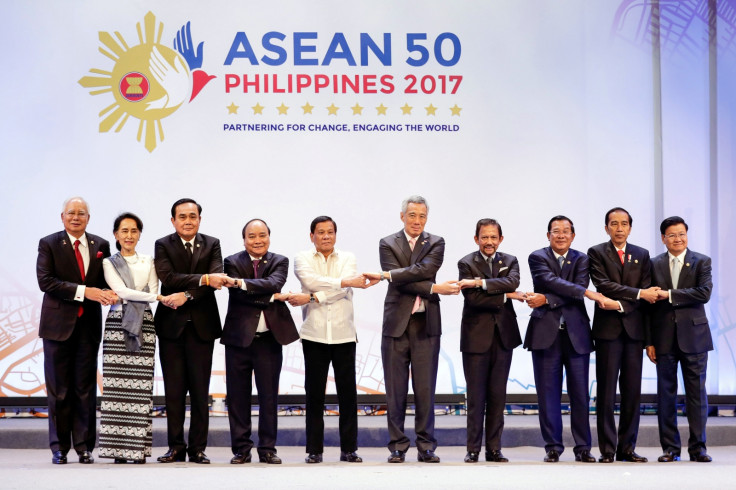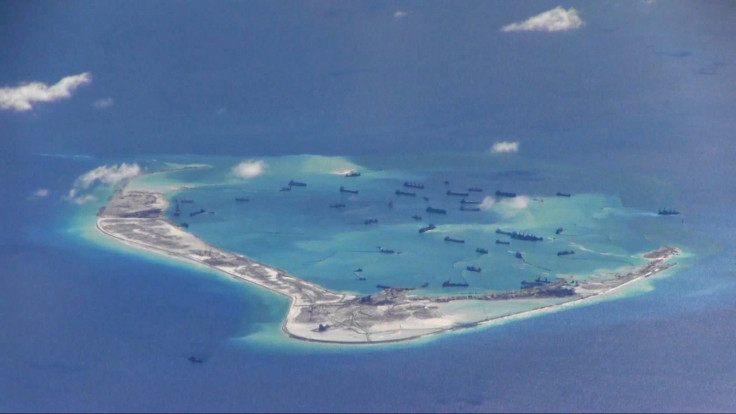Asean meets amid North Korea missile launch tensions and South China Sea row
The summit comes on the day when North Korea test-fired a ballistic missile that failed.
A summit of the 10-nation Association of Southeast Asian Nations (Asean) opened on Saturday (29 April) in Manila, with tensions on the Korean peninsula and the South China Sea territorial dispute high on the agenda.
Philippine President Rodrigo Duterte avoided mentioning Beijing or the South China Sea row as he opened the annual meeting – the first major international event he has hosted since taking office in June last year. He, however, took a swipe at the West accusing the governments there of meddling in regional countries' affairs.
Duterte who is known for his anti-US rhetoric, also touched on many issues, including piracy, extremism, interference in other countries' affairs as well as his brutal war on drugs.
This year's summit comes at a time of particularly high tension on the Korean peninsula and on a day when North Korea test-fired a ballistic missile, which ended up as its second failure in a month.
The meeting also comes at a time when there is uncertainty about US interests in the region. Washington, until recently, was active in the South China Sea maritime dispute with its freedom of navigation operations in a bid to counter China's military expansion on the islands.
However, China's territorial and maritime disputes have been overshadowed in the face of rising North Korean nuclear threats. The Trump administration is said to be busy pressuring China to contain the reclusive state.
China, meanwhile, has reportedly been lobbying and using its friendship with Duterte to make him influence Asean to not take a stance against Beijing on the South China Sea while drafting a much-awaited code of conduct for the sea.
China is not part of the Asean and is not attending the summit. However, it is reportedly wary of the outcome of the event. It has previously attempted to block the mention of South China Sea in the summit or in the standard communiqué issued at the end of the meeting.

Unlike his predecessor, Duterte has been saying that he would not talk about the territorial dispute at the summit. Media reports suggest that this time around too China apparently requested Filipino officials not to mention China's arbitration defeat in the South China Sea.
The Permanent Arbitration Court in The Hague ruled against China and invalidated its nine-dash line claims in the South China Sea, in a case brought by Duterte's predecessors in 2013.
Since the verdict came out on 12 July, Asean members have been working to draft a code of conduct for the regional government to follow with respect to the maritime and territorial issues.
According to AP, an early draft of the current summit's communiqué did not mention the ruling, but it mentioned a phrase – "full respect for legal and diplomatic processes".

China was reported to be unhappy with the phrase and wanted it removed as it believed the phrase referred to the tribunal ruling. The line was eventually removed from the South China Sea topic to be included elsewhere in the latest version of the statement by Asean, AP noted.
However, according to Reuters, the altered statement still includes references to militarisation and island-building in the hotly contested water – a move that is said to provoke China.
China has almost finished building around two dozen structures on manmade islands in the South China Sea, with buildings reportedly housing long range surface-to-air missiles.
© Copyright IBTimes 2025. All rights reserved.





















